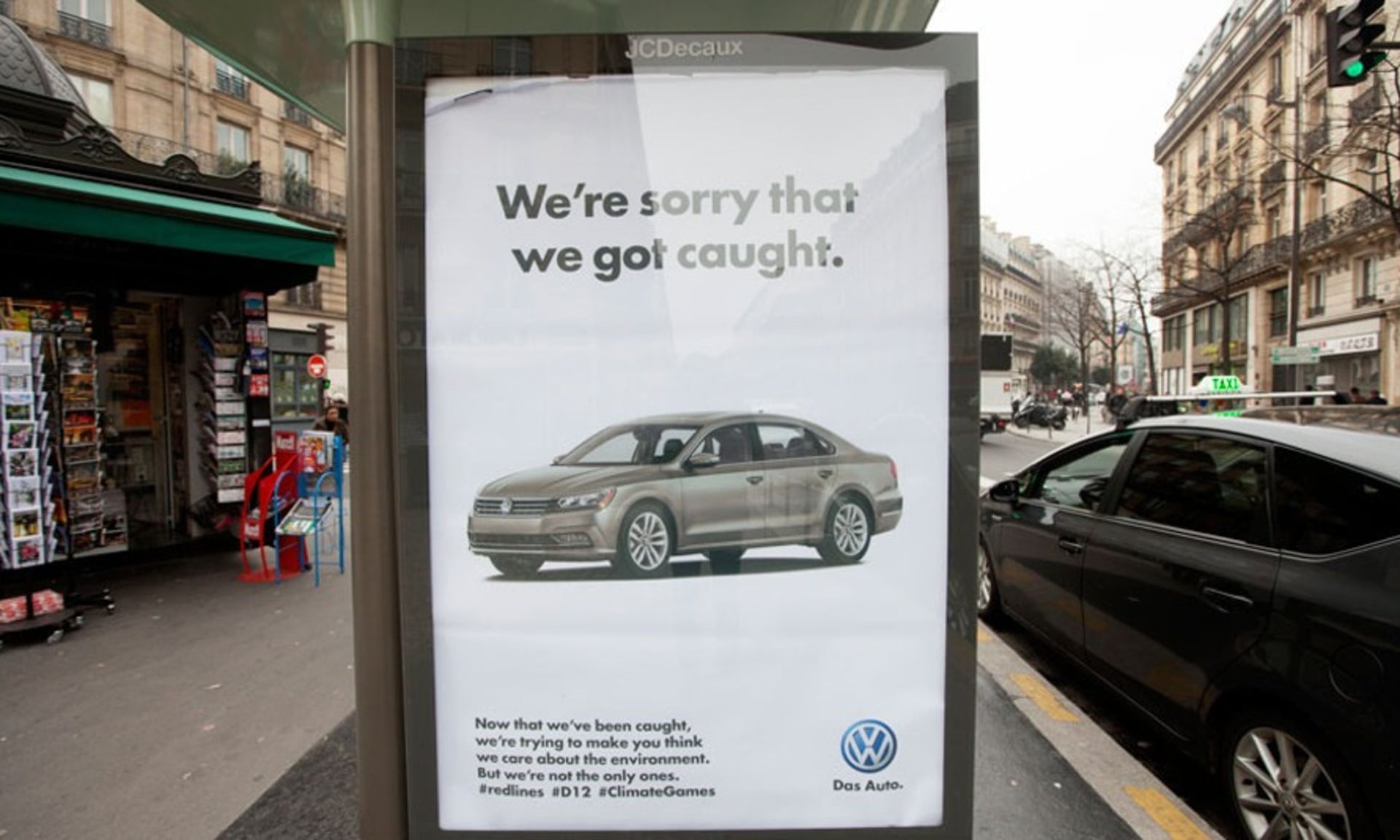The shoe’s creation coincides with the recently-concluded climate change talks in Paris and also inadvertently highlights the presence – and influence – of multi-national businesses and various lobbying groups at the conference. Writing for The New Republic, journalist Jonathan M. Katz points out that companies such as Google, Mars Chocolate, 3M, Air France-KLM are not covering the $185M conference costs for entirely altruistic reasons:
This climate conference is the winners spending hundreds of millions of dollars to make sure they keep winning, in part by making sure that things don’t change so dangerously and fast that everybody loses.
Supporting Katz’s claim is a piece by Arthur Nelson and Emma Howard at The Guardian accusing corporate sponsorship of COP21 as essentially functioning as an attempt to buy public goodwill while hiding their own emissions record. Nelson and Howard also mention the activism at COP21 that took the form of fake advertisements such as these for Volkswagen and Exxon-Mobil:


Other COP21 sponsors include Coca-Cola, LVMH (Louis Vuitton), BMW, and, as reported by Tim McDonnell for The New Republic, EDF, a French electricity utility company that operates coal mines. Here is an official list of corporate, institutional, and media partnerships for COP21.
So what do you think: does the adidas concept shoe represent a viable path for sustainability in the retail clothing industry? There’s no doubt the concept shoe impressively demonstrates potential reuse for plastic waste and the possibilities of 3D printing. But is this shoe, too, a “green-washed” solution that fails to address consumption and waste management as factors affecting climate change?





